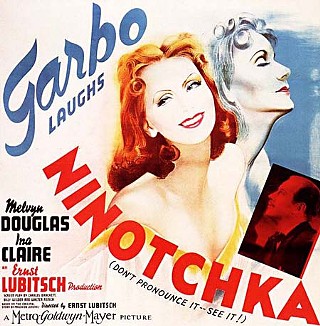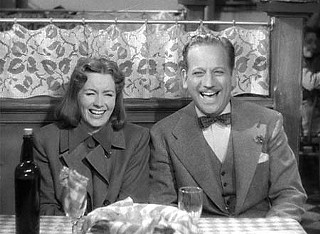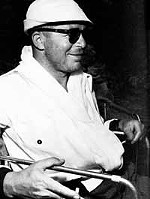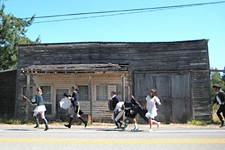Make 'Em Laugh (And, Yes, Even Learn)
The Alamo Drafthouse inaugurates a new film appreciation series, Cinema Club
By Kimberley Jones, Fri., Jan. 29, 2010
She was arguably the most famous actress in the world when she first spoke onscreen in 1930's Anna Christie – an occasion so momentous it was sold with the slogan "Garbo Talks!" – but audiences would have to wait another nine years for that sweetest sound: "Garbo Laughs!" It took someone very special to find the funny bone of the straight-faced Swede and tickle it; you might say Greta Garbo was touched by a Lubitsch. But more likely, you'd say, "Say what?"
"The Lubitsch Touch! You couldn't go to film school without hearing that term, and now you don't hear it anymore," says University of Texas film studies professor Charles Ramírez Berg. "Not only do people not know what the Lubitsch Touch is, they don't know who Lubitsch is."
The nascent Cinema Club, then, is here to educate and elucidate. It's a new, bimonthly series from the Alamo Drafthouse, an outfit more commonly known for genre enthusiasms: the midnight-movie stuff upon which the Alamo brand was built. But then a one-off screening in October of the 1929 silent Piccadilly, timed to celebrate the 80th anniversary of the historic Ritz building on Sixth Street, got them thinking.
"[Alamo co-owners] Tim and Karrie [League] came out of the movie aglow. Everybody came out of that film aglow, and I think that was the impetus for wanting to do something like this," says Alamo programmer Lars Nilsen. "Tim gave us a green light, and we stepped on the gas."
The plan is to screen vintage films in the outer reaches of the classical canon – like this month's selection, Ninotchka – and pair them with film historians from the Austin community. And the point is to provide context to an audience maybe unversed in older cinema and a forum in which to have a back-and-forth conversation. "Watching movies is like a tough drive in a way," says Nilsen. "You [have to be] so alert to every little thing. ... So I think what we want to do, with the help of our academic friends, is to lead discussions about some of those refined points of films. The fine enjoyment of films. Like somebody who's enjoying a fine wine would say: 'Do you note that flavor? You can tell that it was in an oak cask,' or something, you know? I want to alert people to those refined notes in the films."
Nilsen calls "co-captain" Daniel Metz, a University of Texas Master of Arts candidate in film studies, instrumental in connecting the Alamo programmers with UT faculty. First up: Ramírez Berg, a charter member of the Austin Film Society and a much-loved Radio-Television-Film Department institution who regularly wins awards for teaching excellence. For Ramírez Berg, Ninotchka isn't just an outer planet in the classic film constellation, figuratively speaking; it's dangerously close to getting declassified, Pluto-style.
"Because Ernst Lubitsch is one of those filmmakers that I think we've lost track of. I think there are a handful of them that, as the years go by, we kind of lose track of. I think another one is Preston Sturges. We don't show him that much in film classes. I think it's an acquired taste. ... The same thing is probably true of Ernst Lubitsch. So you've got to provide a context and help people along."
No one's trying to intimidate anyone here – Ninotchka isn't rocket science – but it also doesn't go down as easy as some of its screwball comedy contemporaries. Context is key: For one, its comedic critique of Communist Russia circa 1939 grows even more barbed when you take into account that its chief architects, director Lubitsch and co-writer Billy Wilder, were two German-Jewish emigrés with no love for totalitarianism. Garbo plays Ninotchka, a Party faithful and Soviet envoy to Paris who attempts to sell a deposed Russian duchess' jewels in order to fund the next Five Year Plan. Comrade Ninotchka is deliciously grim, not once winking to the camera: "The last mass trials were a great success. There are going to be fewer but better Russians." She meets a man, a playboy bon vivant played by Melvyn Douglas, who helps her find that foretold laugh, but beyond that, I'm not telling. Only this: Seventy-one years later, it's still funny and sweet and shot through with gallows humor (mock execution as foreplay!). Seventy-one years later, and its notes still so refined.
Cinema Club: Ninotchka With Charles Ramírez Berg takes place Sunday, Jan. 31, at 6:30pm at the Alamo Drafthouse at the Ritz. Ninotchka will also screen as a special brunch, sans discussion, on Saturday, Feb. 6. For more info, visit www.originalalamo.com.















